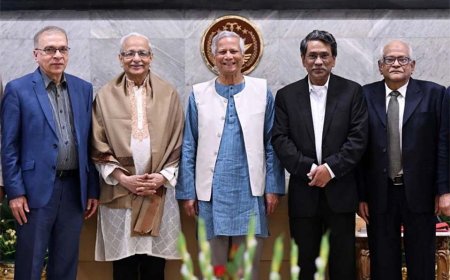How can we escape the grip of crony capitalism?
How can we escape the grip of crony capitalism?

Bangladesh is on the brink of a new chapter. After 15 years of authoritarian governance, which fostered crony capitalism that weakened our institutions and concentrated wealth among a select few, we have a unique opportunity to rebuild our economy and restore faith in governance. The future of Bangladesh hinges on generating jobs for our large youth population and ensuring these initiatives are anchored in the rule of law.
Revitalization: Establishing a Competitive Economy
The previous regime’s crony capitalism stifled competition, innovation, and trust, concentrating wealth in the hands of a few while misallocating resources, hindering investment and growth.
To forge a brighter future, Bangladesh must dismantle this system and cultivate transparent, accountable institutions that foster an environment where businesses can succeed based on merit. As scholars Acemoglu and Robinson highlight in their book *Why Nations Fail,* “Nations fail today because their extractive institutions do not create the incentives needed for people to save, invest, and innovate.”
Job Creation: Unlocking Private Sector Potential
Currently, the country faces a significant unemployment crisis, particularly among those aged 15 to 29. Youth unemployment is a critical issue, and failing to tackle it could lead to economic stagnation and social unrest. Prioritizing job creation is essential, and a multifaceted approach is needed.
One of Bangladesh's major economic vulnerabilities is its heavy reliance on the Ready-Made Garment (RMG) sector, which, while employing millions, exposes the economy to global market fluctuations. To build a more resilient future, the country must diversify its manufacturing base by branching out into higher-value industries such as electronics, pharmaceuticals, and information technology.
The private sector will play a vital role in this transformation:
1. Industry Diversification:** To lessen dependence on garment manufacturing, the private sector must be incentivized to invest in and develop new industries. Government policies should provide tax incentives, easier access to credit, and encourage public-private partnerships to attract investment in high-growth sectors.
2. Infrastructure and Skills Development:** Investing in infrastructure—like roads, ports, and digital networks—is essential for the growth of diverse industries. Equally important is ensuring that our workforce possesses the skills needed for modern manufacturing. Vocational training and education must emphasize emerging industries such as advanced manufacturing, renewable energy, and technology.
3. Private Sector-Led Innovation:** The private sector is crucial for driving innovation and entrepreneurship. By supporting startups and small and medium-sized enterprises (SMEs), we can inspire young entrepreneurs to create businesses beyond garment manufacturing. The government can facilitate this through incubators, mentorship programs, and targeted support for youth-led ventures.
By diversifying industries and harnessing the private sector's innovative potential, Bangladesh can create millions of high-quality jobs for its youthful workforce.
Rule of Law: The Foundation for Growth
None of these job creation efforts will succeed without a strong rule of law. Establishing a robust legal framework is essential to ensure that businesses can operate fairly and securely.
Investors must have confidence that contracts will be honored, property rights will be safeguarded, and that corruption will not hinder growth. This includes implementing transparent procurement practices and ensuring an independent judiciary free from political influence. Reforms in the judiciary, anti-corruption measures, and transparent governance are vital for creating a stable environment where businesses can thrive.
As Lee Kuan Yew, the architect of modern Singapore, famously stated, “Without law and order, there can be no progress.” For Bangladesh to attract necessary investments and maintain economic growth, reinforcing the rule of law must be a top priority for the interim government.
Seizing the Moment for Transformative Change
With decisive leadership, strategic investments, and a clear commitment to creating jobs in high-growth sectors, Bangladesh can capitalize on this once-in-a-generation opportunity for national prosperity.
The time to act is now; any delay risks squandering this rare chance for transformative change.
What's Your Reaction?





















































































